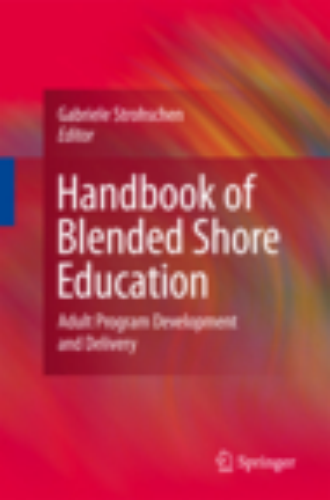Mar 11, 2009
DePaul Faculty To Discuss New Book on Successful Adult Learning in Developing World
DePaul Faculty To Discuss New Book on Successful Adult Learning in Developing World
Teaching adults in developing countries must include helping them learn how to improve their societies in addition to their minds, a new book co-authored by nine DePaul University professors and other noted adult learning experts concludes.
The DePaul professors will discuss the book’s findings at 9:30 a.m. March 19 in the DePaul University Club in the DePaul Center, 1 E. Jackson Blvd., Chicago. The event is free and open to the public.
As adult education programs have developed into a global industry, the authors question the practice of “exporting” education as a commodity devoid of social conscience, saying it should help solve world problems in addition to educating people.
“Education is increasingly becoming a product delivered to emerging economies by ‘first-world’ institutions. Given the demand for education programs in the international arena, it is crucial that adult educators commit to the critical goal of social progress and sustainability,” said Gabriele Strohschen, a DePaul assistant professor who compiled the book.
“Handbook of Blended Shore Education” (Springer 2009) aims to help educators and corporations learn how to use a “blended shore” approach to adult learning that values interdependence and respect for indigenous wisdom and supports a professional practice of adult education in any setting. The book includes contributions from 31 noted adult education experts worldwide who examine best practices for adult education programs on a global level.
The book already has been recognized as building a new theory for international/intercultural adult education program design and delivery by scholars such as Kathleen King, a professor at Fordham University in New York, and Stephen Brookfield, a Distinguished University Professor at the University of St. Thomas in Minneapolis-St. Paul, Minnesota.
“The concept of ‘blended shore’ focuses on addressing the needs of adults in diverse settings, such as community-based, higher education, corporate training and professional development,” Strohschen said. “The book introduces a new level in blended shore education that can be achieved when partner countries reach a transformation point where both benefit from examined values and the time and costs invested in the program.”
Contributing author Marco Tavanti, assistant professor in DePaul’s School of Public Service in the College of Liberal Arts and Sciences, has worked with three DePaul study abroad programs that have achieved such goals.
“Inspired by the leadership of Saint Vincent de Paul, patron of our Vincentian universities, students are invited to transform their values and skills into a positive and sustainable effort to better the economic, societal and environmental conditions of this world,” Tavanti writes in the book. “The programs invite our students to become global citizens and socially responsible leaders in an interdependent, international and intercultural global society.”
In addition to Strohschen and Tavanti, DePaul faculty members who authored chapters in the book are Kevin Downing, associate professor in DePaul’s School for New Learning; Kenneth Browne Elazier, a visiting professor at DePaul; Jennifer Holtz, an assistant professor in the School for New Learning; retired Pakistani Ambassador Ahmad Kamal, an honorary visiting professor at DePaul; Raymond Sambuli Mosha, an instructor in the School for New Learning; Beth Rubin, an assistant professor and director of online programs in the School for New Learning; and Pat Szczerba, a visiting professor in the School for New Learning.
Other notable contributing authors include Roger Boshier, a professor of adult education at the University of British Columbia; Shyamala Mani at the Centre for Environmental Education, based in New Delhi, India; Holger Daun, a professor in international and comparative education at the Institute of International Education, the Department of Education, Stockholm University in Sweden; and W. Franklin Spikes, professor of educational leadership and director of the doctoral program in adult education in the College of Education at Kansas State University. Kenneth Gergen, senior research professor at Swarthmore College and director of the Taos Institute, wrote the book’s foreword.
Proceeds from the sale of the book will be donated to the Orphanage Ban Thanhathai in Ratchaburi, Thailand. For more information, contact Strohschen at 312/362-5122 or gstrohsc@depaul.edu.

